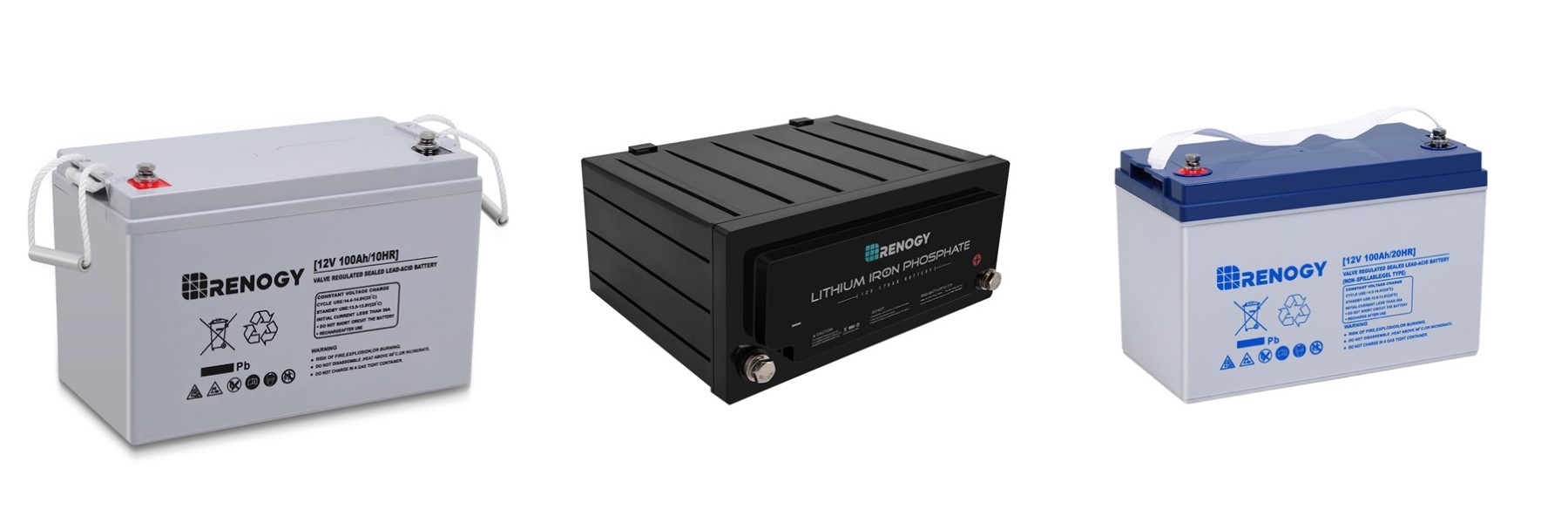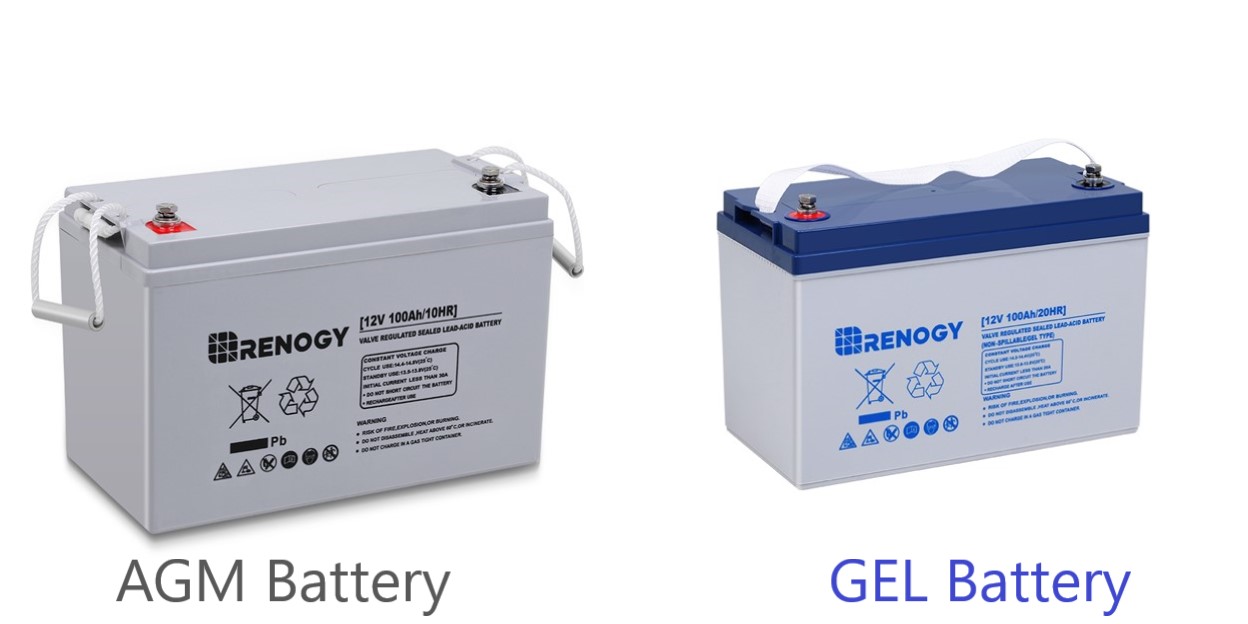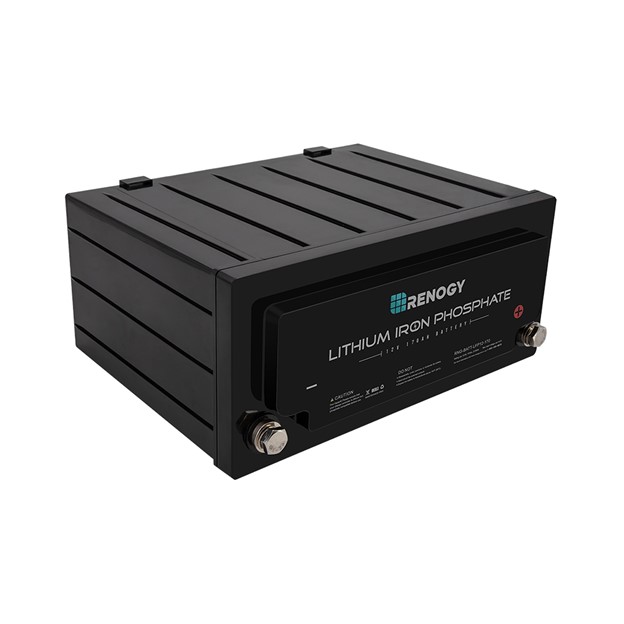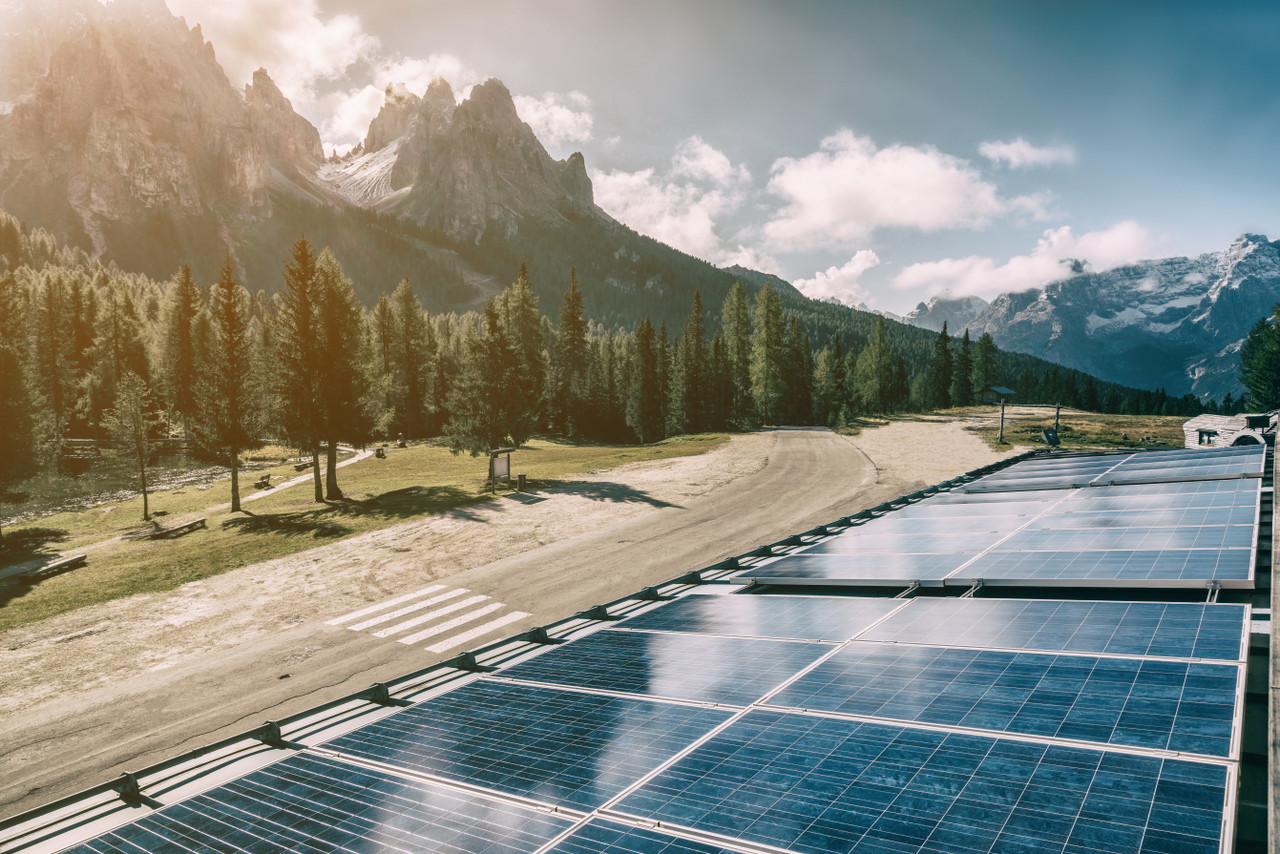Everything You Need to Know About Solar Energy & Solar Batteries
What is the best 12V deep cycle battery for my solar installation?
Once you make the decision to add battery storage to your solar installation there’s a lot to consider, including battery type, voltage, capacity, cycle life, and price. 12 volt deep cycle batteries can definitely take your solar installation to the next level and improve your quality of life, but how do you decide on the best solar battery for your system and what should you know about sizing your battery bank?
Is battery storage worth it for me?
First off, it’s important to ask yourself if battery storage is even right for you and your lifestyle.
I live in a caravan or motorhome: Yes!
Adding battery storage is a crucial step to creating a powerful off-grid solar system for your mobile lifestyle. Installing solar panels and batteries can take the place of a gas-powered generator, giving you the peace of mind that you’ll be able to meet all your energy needs while on the open road. You’ll also be able to use energy at night or when your panels aren’t generating power.
I live in a home with access to the electrical grid: Battery storage is useful in case of outages.
Battery storage can be a great asset for many homeowners with solar installations. Having a battery bank can give you the ability to run your solar panels and keep your lights on in case of an outage and can also give you the ability to go off-grid.

Which batteries are best for solar?
Deep cycle batteries are the go-to battery for solar installations because they are designed to provide a sustained period over a longer period of time. Within that larger category of deep cycle batteries are a range of specific types. The most common ones used for solar installations are flooded lead acid, sealed lead acid, and lithium iron batteries. We’ll talk more about those in a minute. It’s important to know that if you’re wiring batteries together in a battery bank to use batteries of the same type and amp hour. So if you decide to go with a lithium iron phosphate battery, all the batteries in your battery bank should be lithium batteries. This will limit any efficiency loss due to having different batteries.
What should I consider when deciding on a battery for my solar panels?
When shopping for batteries for your solar installation, there are some key factors to consider: price, capacity, voltage, and cycle life.
Price: Depending on the technology, prices between batteries can vary greatly. Be sure to consider the ultimate lifetime and not just upfront costs of a battery, as you will have to replace lead acid batteries and maintain them more than a lithium iron battery.
Capacity: Battery capacity measures the amount of energy you can store in a battery. So if you have large appliances that draw energy over long periods of time, you’ll need more batteries to meet that demand. Battery capacity is measured in total amp hours.
Voltage: You can typically size your solar installation as 12, 24, or 48 volt. Batteries and solar panels typically come in either 12V and 24V options. Most RV’s and boats typically use 12V battery banks, so people looking to install solar on those applications stick with 12v panels and batteries. Most of Renogy’s batteries are 12v batteries.
Cycle Life: This refers to the number of discharge and charge cycles a battery can provide before the capacity drops below the rated capacity. This varies sharply from technology to technology and is measured in the number of cycles.
Is 12V enough for my system? What about 24v or 48v?
Panels, batteries, and inverters typically come in either 12V, 24V, or 48V options. Most RV’s and boats typically use 12V battery banks, so people usually stick with 12V systems. Many larger home systems are rated at 24v or 48v.
12v systems are suitable for many scenarios, including:
1. RVs/motorhomes/vans
2. Camper trailers
3. Small cabin or tiny home
If your energy needs are around 1,000 to 5,000 watts, we recommend opting for a 24 volt system.
If your energy needs are over 3,000 watts, install a 48 volt system. Large off-grid houses often use 48V.
If you’re in the middle of those ranges, such as 3,000 watts, there is an advantage of opting for the higher voltage. You’ll need fewer charge controllers and can utilize thinner cables to achieve the same amount of power. This means you’ll most likely save money in the long run.
What are flooded lead acid batteries?
Flooded lead acid batteries are the cheapest, but also require the most maintenance. Flooded lead acid batteries contain a combination of a liquid electrolyte. The liquid in these batteries must be carefully measured and maintained in order for the battery to perform properly and live up to its advertised shelf life. They also have to be housed in a well-ventilated room since they emit gases.
What are sealed lead acid batteries?
Contrary to flooded lead acid batteries, sealed lead acid batteries require little to no maintenance and are spill-proof. They may look similar to flooded lead acid batteries, but there is no access to the inside compartment where you need to add water. With that added convenience as well as a longer cycle life comes a higher price tag.

Within the larger grouping of sealed lead acid batteries are two types: absorbed glass mat (AGM) and gel batteries. AGM batteries are the cheaper of the two and offer a better temperature range. Gel batteries, which use silica to stiffen the electrolyte solution in the battery, tend to have lower charger rates and output than absorbed glass mat batteries. They also can’t handle as much current, meaning they take longer to recharge. However, gel batteries have a greater lifespan than AGM batteries.

Lithium iron phosphate batteries are the most advanced and expensive battery type, are compact and lightweight, have an extremely long cycle life, and high discharge and recharge rates. They also require little to no maintenance.
Lithium batteries have the best cycle life of deep cycle batteries, offering approximately 2000 cycles at 100% DoD (depth of discharge.) Lithium batteries typically have a lifespan of at least 10 years and lose less capacity when idle. This is especially useful in cases where solar energy is only used occasionally.
How many batteries will I need?
The amount of battery storage you need is based on your energy usage. Energy usage is measured in kilowatt hours. For example, if you need 500 watts for 8 hours per day, then your energy usage is 4kWh per day.
Properly sizing your system is very important, especially in off-grid systems where you are relying solely on your installation to keep your lights on. To size a system that will best fit your needs, we recommend making a list of all the devices you plan on running, the specific energy needs of those devices, and how long and often you plan to run them. The Renogy Solar Panel Calculator is a great, headache free way to determine your specific energy needs.
Conclusion
Battery banks are a great way to “level up” your solar installation. 12V deep cycle batteries are a powerful, efficient, and safe way to ensure you have energy access during any scenario, from energy outages to living a remote, off-grid lifestyle.
See other related articles at Renogy:
Solar Panels Maintenance Best Practices And Costs
A Guide to Installing Solar Panels On Van Or RV
Solar Panels 101: A Beginner's Guide
The Ultimate Guide To DIY Off-Grid Solar Systems
Do solar panels increase home value
How efficient are solar panels
How Many Solar Panels Do I Need








